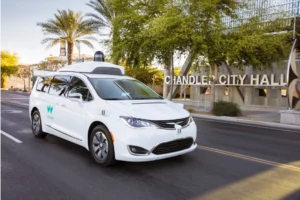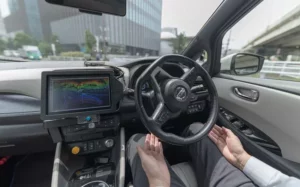A new survey suggests the majority of British drivers wouldn’t trust an autonomous vehicle to keep them safe.
Research by insurance comparison site Go Compare found that 77% of motorists surveyed wouldn’t trust a self-driving car to keep themselves or their families safe on the road, while two-thirds said they don’t believe autonomous vehicles will improve road safety at all. Furthermore, more than half said they think driverless cars are just a gimmick.
Despite the distrust of fully autonomous vehicles, researchers say Britain’s car owners are “giving the green light” when it comes to assistive technology that makes driving easier.
Integrated navigation, backup cameras, and cruise control were all among motorists’ must-haves. Reversing sensors proved the most popular, with over a fifth of drivers choosing this as their most essential add-on. They say this highlights that there is a clear disparity in trust between assistive and autonomous technology in cars.
However they say while many motorists desire safety-enhancing features, “the same can’t be said for mandatory speed limiters”. 41% of drivers said they would be deterred from purchasing a new car if this technology is introduced – rising to 55% of those aged 18-24.
From the 6th of July 2022, all new cars sold in Europe must be fitted with a mandatory speed limiter, according to legislation by the European Commission. It’s possible that Britain may also implement this new manufacturing regulation.
Additional research by GoCompare revealed that almost three-quarters (74%) of UK vehicle owners aren’t aware of the potential change, and only a third of young drivers have heard of the legislation.
As the demand for safety-enhancing features rises, it’s still unclear how such technology will impact car insurance premiums.
Ryan Fulthorpe, car insurance expert at GoCompare, said: “You would expect all [features such as collision avoidance, parking sensors, and onboard cameras] to have a positive impact on premiums, due to the way in which you would hope they can reduce incidents and lower claims frequencies.
“What we don’t know is if and how insurers ingest and then utilise their data. It also depends on how the above are declared to the insurer.”
(Picture – Yay Images)





















